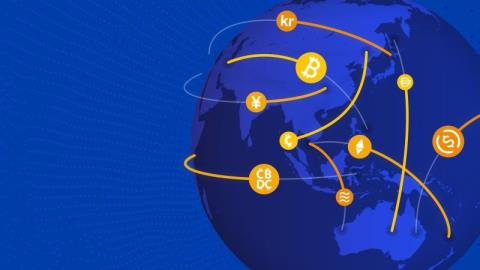At the Singapore Fintech Festival 2022, a session titled ‘Unlocking TradFi with DeFi’ featured insights from DBS, JP Morgan, and SBI Digital Asset Holdings about the launch of the first industry pilot under the Monetary Authority of Singapore’s (MAS) Project Guardian. This initiative aims to explore potential DeFi applications in wholesale funding markets, successfully completing its first live trades.
During this pilot, the participating banks executed foreign exchange and government bond transactions against liquidity pools that included tokenised Singapore Government Securities Bonds, Japanese Government Bonds, Japanese Yen (JPY), and Singapore Dollar (SGD). A significant milestone was achieved with the successful execution of a live cross-currency transaction involving tokenised JPY and SGD deposits, alongside a simulated transaction for buying and selling tokenised government bonds.
Decentralized Finance (DeFi) allows entities to transact directly with one another using smart contracts, eliminating the need for intermediaries. Alan Lim, head of the fintech infrastructure office at MAS, highlighted that Project Guardian focuses on creating open interoperable networks, establishing trust anchors, asset tokenisation, and developing institutional-grade DeFi protocols.
Umar Farooq, CEO of Onyx by JP Morgan, emphasized that such DeFi projects provide an opportunity to re-evaluate end-to-end infrastructure and generate new cash flow streams. He stated, “DeFi, blockchain, and tokenisation offer a chance to standardize data representation and potentially unify various processes.”
Digital assets create novel avenues for value creation for individuals, businesses, and banks. Farooq pointed out that creating and transacting with valued assets enhances the ability to swiftly exchange tokens, leading to new market opportunities.
Han Kwee Juan, managing director and group head of strategy and planning at DBS, concurred, noting that tokenised assets offer the ability to represent value digitally, integrating blockchain and smart contracts to enhance efficiency. He also cautioned that as the industry embraces programmable smart contracts, attention to risk management becomes increasingly important.
He indicated that smart contract auditing will be vital as the sector transitions towards these technologies. In light of Anti-Money Laundering (AML) and Counter Financing of Terrorism (CFT) concerns, the anonymity of wallets presents challenges, especially regarding the unknown identities of trading counterparties. Despite the inherent risks, he mentioned that Project Guardian is actively working to address these issues.
Fernando Luis Vazquez Cao, CEO of SBI Digital Asset Holdings, noted that the work being done today by blockchain and DeFi innovators is shaping the future of finance for the next decade or two. He asserted that all banks should align with these developments in their data processing strategies, acknowledging the complexities of implementation in a rapidly evolving sector.
The panelists agreed that while Asian jurisdictions have regulatory frameworks and licenses in place, the establishment of robust risk controls and governance structures is essential. Farooq also pointed out the tension between risk and reward in DeFi, suggesting that it could lead to industry divides and repeated mistakes.
He emphasized the importance of learning from recent financial history to mitigate potential pitfalls as protocols in DeFi evolve. Farooq elaborated that Project Guardian stands apart because, while many organizations are exploring DeFi, banks must prioritize customer protection—highlighting that financial liability arises when users experience losses.
The project’s initial focus has been on tokenising familiar products, such as JP Morgan’s tokenised bank deposits on the blockchain. He envisions a future where various digital assets coexist, including CBDCs, stablecoins, cryptocurrencies, and tokenised deposits, with safety and security being essential priorities.
Since the unveiling of Project Guardian in May 2022, MAS has engaged with the financial industry to explore collaborative opportunities, undertake industry pilots, assess regulatory and risk management implications, and establish technology standards.
As a result of these industry engagements, MAS is instituting two new pilot projects: Standard Chartered Bank is spearheading an effort to explore the issuance of tokens for trade finance assets, aiming to digitise and enhance the transparency and accessibility of trade assets for investors. Simultaneously, HSBC and UOB are collaborating with Marketnode to facilitate the native digital issuance of wealth management products, thereby improving efficiency and accessibility for investors. MAS continues to invite further industry proposals aligned with the key objectives of Project Guardian, focusing on open interoperable networks, trust anchors, asset tokenisation, and institutional-grade DeFi protocols.
